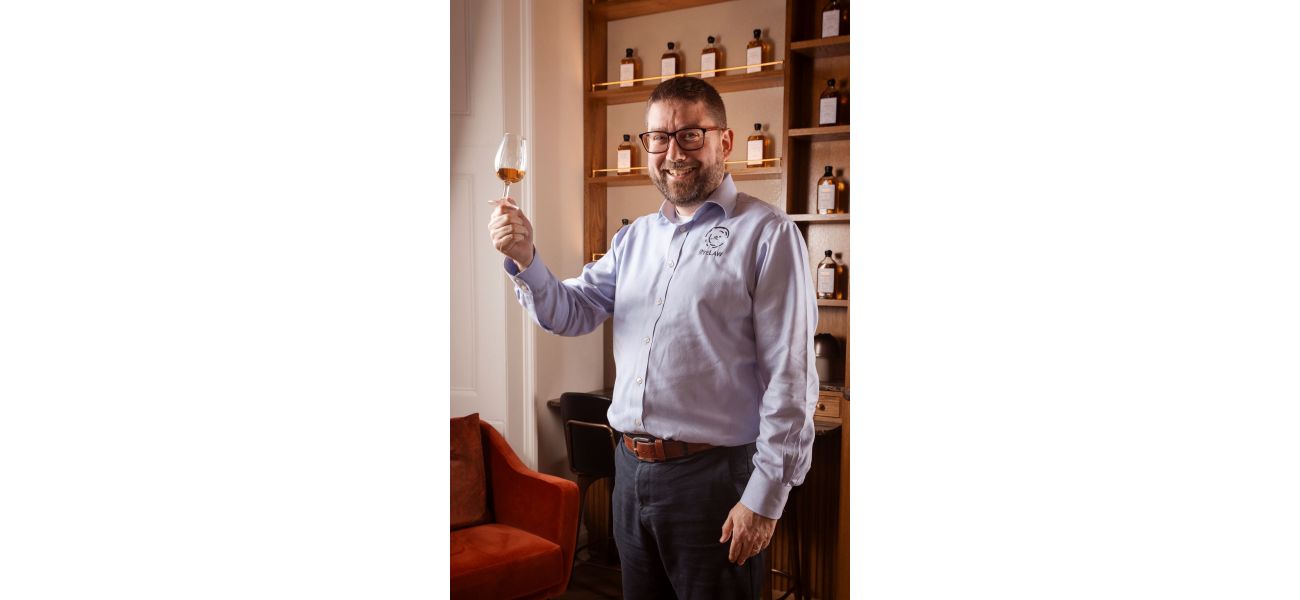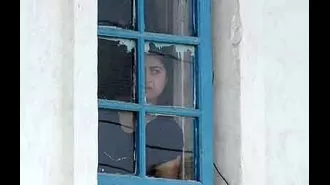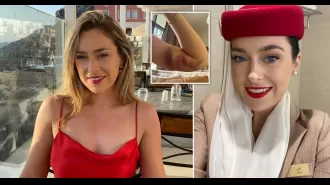Get an insider's look at the production process of RyeLaw at InchDairnie Distillery in this edition of Producer's Corner.
Fife distiller InchDairnie defies tradition with RyeLaw, the first malted rye whisky in the world. Despite challenges, they successfully revive the use of rye in Scotch.
February 7th 2025.

When InchDairnie, a distillery based in Fife, released their newest creation, RyeLaw, the world's first malted rye whisky, it caught the attention of many. The inspiration for this unconventional whisky came from America's famous Rye whisky, and InchDairnie took on the challenge of incorporating rye into Scotch whisky production. However, working with rye proved to be a difficult task. Traditional equipment could easily become clogged and blocked by the grain, and unlike in America, where enzymes are added to help convert the starch to sugar, Scottish whisky regulations do not allow for any additives during the mash process.
Scott Sneddon, the Managing Director at InchDairnie, explained that rye was historically used in Scotch whisky but fell out of fashion for many years. The team at InchDairnie looked to the American mash bill as a guide but made sure to stay true to their Scottish roots. They wanted to revive the use of rye in Scotch whisky but take it to a new level by malting the cereal. In Scotland, it is not permissible to add enzymes to the mash, so the rye must be malted to adhere to the regulations of creating "wholly natural" whisky. Additionally, malted rye adds a unique and rich flavor profile to the whisky, with a tantalizing spiciness and a beautiful aromatic scent.
To extract the most flavor from the rye, the team at InchDairnie uses a mash filter and a hammer mill to finely grind the grain. RyeLaw is made up of 53% malted rye and 47% malted barley, adhering to the definition of American rye whisky. However, due to current Scotch whisky regulations, InchDairnie is unable to label and market RyeLaw as "rye whisky," even though distilleries outside of Scotland that use a similar process can.
In line with their commitment to using local ingredients, InchDairnie sources their grains for RyeLaw from nearby farms. For the 2017 vintage, the rye was grown by two farmers at Rosskeen farm. Sneddon explains that their unique process equipment allows them to work with different grains, resulting in a variety of flavors in their whiskies. The first vintage of RyeLaw was distilled in 2017 and bottled in 2022. As a limited release, only 200 casks were ever bottled, making it a rare find for whisky enthusiasts worldwide.
InchDairnie's distillery is equipped with innovative technology, such as the Meura mash filter and double condensers in the stills, to maximize flavor extraction and create distinct spirits. They also use a bespoke still, designed by founder Ian Palmer, specifically for RyeLaw. The still, named after the hills overlooking the distillery, has six bubble cap trays in its neck, allowing for precise distillation at exactly 72% ABV.
Sneddon proudly states that RyeLaw is the only whisky in the world made with malted rye and distilled in a bespoke Lomond Hill still. This still, designed for "precision distilling," has six internal rectification plates with bubble caps in the neck, allowing for higher reflux and more control during the distillation process. This results in a refined spirit with optimum flavor. RyeLaw truly stands out as the only precision-distilled, malted rye Scotch whisky in the world, making it a unique addition to the modern distilling scene.
To learn more about InchDairnie and their innovative RyeLaw whisky, visit their website at www.inchdairniedistillery.com/ryelaw. And for more fascinating stories from Scotland's world of whisky, be sure to check out Producer's Corner and subscribe to the latest issue of Scottish Field.
Scott Sneddon, the Managing Director at InchDairnie, explained that rye was historically used in Scotch whisky but fell out of fashion for many years. The team at InchDairnie looked to the American mash bill as a guide but made sure to stay true to their Scottish roots. They wanted to revive the use of rye in Scotch whisky but take it to a new level by malting the cereal. In Scotland, it is not permissible to add enzymes to the mash, so the rye must be malted to adhere to the regulations of creating "wholly natural" whisky. Additionally, malted rye adds a unique and rich flavor profile to the whisky, with a tantalizing spiciness and a beautiful aromatic scent.
To extract the most flavor from the rye, the team at InchDairnie uses a mash filter and a hammer mill to finely grind the grain. RyeLaw is made up of 53% malted rye and 47% malted barley, adhering to the definition of American rye whisky. However, due to current Scotch whisky regulations, InchDairnie is unable to label and market RyeLaw as "rye whisky," even though distilleries outside of Scotland that use a similar process can.
In line with their commitment to using local ingredients, InchDairnie sources their grains for RyeLaw from nearby farms. For the 2017 vintage, the rye was grown by two farmers at Rosskeen farm. Sneddon explains that their unique process equipment allows them to work with different grains, resulting in a variety of flavors in their whiskies. The first vintage of RyeLaw was distilled in 2017 and bottled in 2022. As a limited release, only 200 casks were ever bottled, making it a rare find for whisky enthusiasts worldwide.
InchDairnie's distillery is equipped with innovative technology, such as the Meura mash filter and double condensers in the stills, to maximize flavor extraction and create distinct spirits. They also use a bespoke still, designed by founder Ian Palmer, specifically for RyeLaw. The still, named after the hills overlooking the distillery, has six bubble cap trays in its neck, allowing for precise distillation at exactly 72% ABV.
Sneddon proudly states that RyeLaw is the only whisky in the world made with malted rye and distilled in a bespoke Lomond Hill still. This still, designed for "precision distilling," has six internal rectification plates with bubble caps in the neck, allowing for higher reflux and more control during the distillation process. This results in a refined spirit with optimum flavor. RyeLaw truly stands out as the only precision-distilled, malted rye Scotch whisky in the world, making it a unique addition to the modern distilling scene.
To learn more about InchDairnie and their innovative RyeLaw whisky, visit their website at www.inchdairniedistillery.com/ryelaw. And for more fascinating stories from Scotland's world of whisky, be sure to check out Producer's Corner and subscribe to the latest issue of Scottish Field.
[This article has been trending online recently and has been generated with AI. Your feed is customized.]
[Generative AI is experimental.]
0
0
Submit Comment





